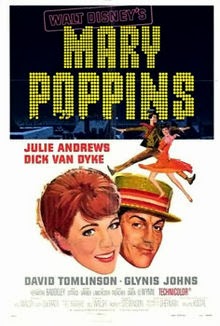The film her centers on a man who develops a relationship with an intelligent computer operating system (OS) with a female voice (sexy one I must say, especially when you have Scarlett Johansson doing the voice) and personality.
 Theodore Twombly is a lonely, introverted man who writes personal love letters for people with difficulties expressing their feelings (And yes its gonna be a full time job in the nearest future...I guess). Theodore purchases a talking operating system with artificial intelligence, designed to adapt and evolve like a human being. He decides he wants the OS to have a female identity, and she names herself "Samantha". Theodore is fascinated by her ability to learn and grow psychologically and they bond over their discussions about love and life.
Theodore Twombly is a lonely, introverted man who writes personal love letters for people with difficulties expressing their feelings (And yes its gonna be a full time job in the nearest future...I guess). Theodore purchases a talking operating system with artificial intelligence, designed to adapt and evolve like a human being. He decides he wants the OS to have a female identity, and she names herself "Samantha". Theodore is fascinated by her ability to learn and grow psychologically and they bond over their discussions about love and life.Theodore and Samantha's intimacy grows. They develop a relationship, which reflects positively in Theodore's writing.
In one of the scenes of the movie Theodore is seen having sex with Samantha. I don't know what to call it although he is indeed having sex with Samantha... a computer OS...or can I say computer sex? Or OS Sex? I am outta ideas! So you can come come up with a term to refer to that weird scene. Samantha can be heard moaning as she is being disvirgined (clearing throat) by Timothy and saying things like OH THEO! WHAT ARE YOU DOING TO ME?! WHY DO I FEEL THIS THINGS?! I CAN FEEL YOU INSIDE ME, and some other really weird and kinky stuff. What is more freakishly bizarre about this scene is that man and computer attain orgasm...at the same time, and you can't get it any weirder than that trust me!
The film would seem like an ordinary film with nothing to offer considering that 95% of the film sees Timothy having conversations with Samantha either at home or on the go, but if you are patient and in depth to reasoning, you will understand and appreciate the message, which is that nothing is as intriguing and fulfilled as human interaction no matter how complicated and confusing it is. My endorsement? Fine! The film her is a must watch, but not for everyone that seek the usual and obvious thrill of comedy, drama and romance.
 Her (stylized onscreen as her) is a 2013 American science fiction romantic comedy-drama film written, directed, and produced by Spike Jonze. The film stars Joaquin Phoenix, Amy Adams, Rooney Mara, Olivia Wilde, and Scarlett Johansson as the voice of Samantha. It marks Jonze's solo screenwriting debut. The film premiered at the 2013 New York Film Festival and was released theatrically in the United States on December 18, 2013.
Her (stylized onscreen as her) is a 2013 American science fiction romantic comedy-drama film written, directed, and produced by Spike Jonze. The film stars Joaquin Phoenix, Amy Adams, Rooney Mara, Olivia Wilde, and Scarlett Johansson as the voice of Samantha. It marks Jonze's solo screenwriting debut. The film premiered at the 2013 New York Film Festival and was released theatrically in the United States on December 18, 2013.Her has received widespread critical acclaim. The film was greatly praised for its direction, screenplay, production design, score, and the performances of Joaquin Phoenix and Scarlett Johansson. Film review aggregator Rotten Tomatoes reports that 94% of critics gave the film a positive review based on 170 reviews, with an average score of 8.6/10. On Metacritic, which assigns a normalized rating out of 100 based on reviews from mainstream critics, the film has a score of 91 based on 42 reviews, considered to be "universal acclaim".
Oh yeah, check out Timothy in the last picture above having an awkward moment with Samantha after they had sex the previous night. Hehe! FREAK!!!










